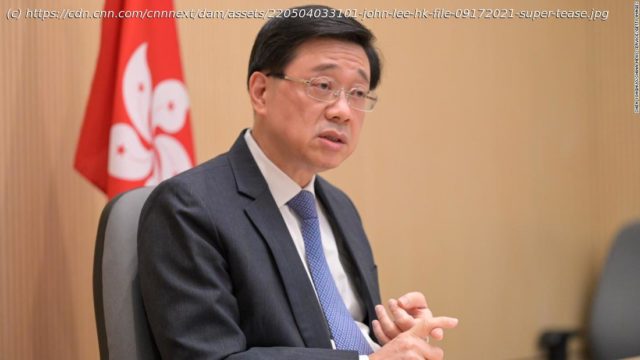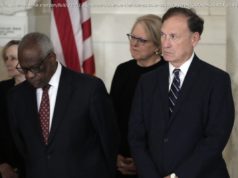When John Lee becomes the next chief executive, many expect Beijing’s crackdown on civil liberties to continue. Where does that leave Hong Kong’s embattled gender movement?
The choice to endorse Lee — a hardline security official known for overseeing heavy crackdowns on the city’s massive pro-democracy protests in 2019 and who has little policymaking experience when compared to the city’s past leaders — suggests that national security may continue to be prioritized above all else in the years to come. Activists and scholars also say the move will only further hinder civil liberties and human rights, including one that has already come under fire: the city’s embattled gender movement. « If John Lee adopts the Mainland China model of managing civil society, this may bring about a further onslaught of Hong Kong’s once vibrant civil society, » says Diana Fu, Associate Professor of political science at the University of Toronto. « In the mainland model, civil society groups that advocate for liberal rights — including gender equality — are seen as conduits of Western influence. » « Gender awareness has to be promoted from the bottom up, » said Petula Ho, a local feminist scholar. « But it’s like the whole of society has given up on this issue. » The past several years have not been good for feminism and gender rights in Hong Kong. The pro-democracy protests that rocked the city also saw women protestors reportedly trolled online and sparked #ProtestToo, a rare #MeToo-style sub-movement where thousands gathered following allegations of sexual assault by the police. One complaint, filed by a teenager who accused officers of gang rape during the protests, was dropped by the Department of Justice due to « contrary evidence. » While praised for the active involvement of women protesters, the pro-democracy movement itself has also been criticized for sexism. Female government officials, police officers and critics of the movement faced sexualized insults and threats; frontline women protesters were idealized as martyrs, which some feminists have condemned as it presents women as only being of value in their sacrifice. « [The pro-democracy movement] has this populist element which has made it more patriarchal and more difficult for diversity and gender issues to exist, » said Ho, who has researched these dynamics and told CNN she’s faced attacks on social media for her critiques. Beijing’s crackdown on Hong Kong has made it more difficult to advocate for any causes, let alone gender-related ones. Since the implementation of the national security law in 2020, over 50 civil society groups, from trade and teachers’ unions to student organizations, have disbanded. And more than 180 people (including activists and pro-democracy figures who have advocated for gender issues) have been arrested since the law was enacted in June 2020, according to a tracker run by ChinaFile magazine. Following an overhaul of the city’s electoral system to ensure loyalty to the Chinese state, pro-Beijing lawmakers and councilors now dominate the city’s legislature. After the reforms, more than 200 district councilors have either resigned or been disqualified and many have been arrested on national security grounds, forcing out almost all opposition. Those ousted include Tiffany Yuen, a former district councilor with a background of promoting women’s rights and Raymond Chan, Hong Kong’s first lawmaker who publicly identified as gay, as well as three other gay and lesbian district councilors. Kenneth Cheung, one of those councilors, democratically elected into office by voters in 2019 before he was disqualified by authorities, said the expulsion of pro-democracy politicians will further reduce avenues for gender advocacy in the government. Cheung said many researchers and office staff working on gender-related initiatives with pro-democracy lawmakers are now unemployed, and there is now less progressive representation on these issues in public forums. The closing of progressive media outlets such as Stand News has already weakened coverage on these topics, he added. « When I look ahead at the next five to ten years, I feel depressed, » Cheung said, explaining that democracy and progressive causes are intrinsically linked. « Before, democratic politicians would raise issues about marginalized communities or invite questions. In the coming era, we probably won’t see this anymore. » Political changes have also hampered the gender activism of Lily Wong, a sex activist and former member of the now-disbanded pro-democracy group Demosisto.
Home
United States
USA — Political With new leader, the future for progressive politics looks more challenging –...






